Deluded-wanderer - Deluded Wanderings

More Posts from Deluded-wanderer and Others
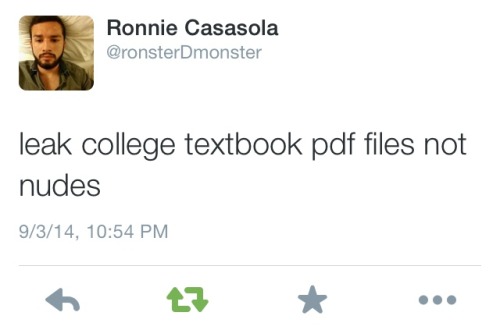
Hello! First of all, thanks so much for this awesome blog. I wanted to ask if you have suggestions on how I can deepen my understanding of psychology—I am INFJ and I'm personally interested in using study the way you do to derive insights and interpretations because I have always been interested in the field. However, when I try to read textbooks or formal sources of information I find myself unable to apply the information or really see the 'point' of it; what should I approach as a beginner?
I’m not sure that I can give you an encouraging response because, in reality, the path of independent learning is a difficult one to travel, and sometimes it is only your own passion that sustains you, i.e., you must be intrinsically motivated.
Keep reading
We can't get rid of slavery, the economy will collapse!
We can't get rid of child labor, the economy will collapse!
We can't have 8 hour work days, the economy will collapse.
What? The workers want TWO days off a week? Don't they know the economy will collapse?

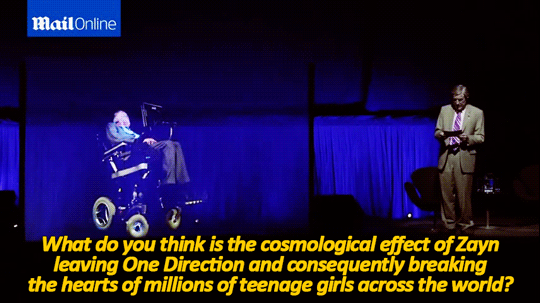
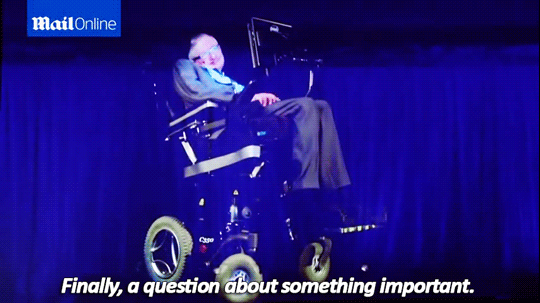
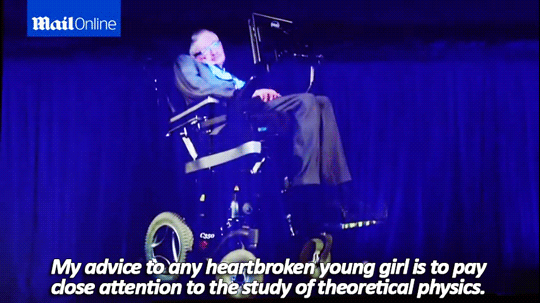
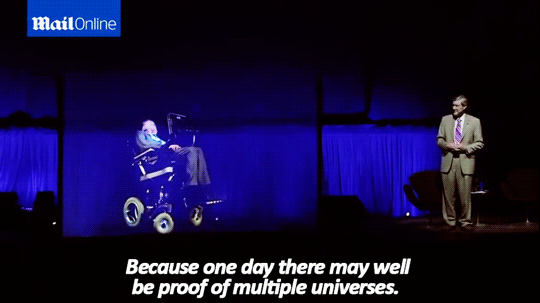
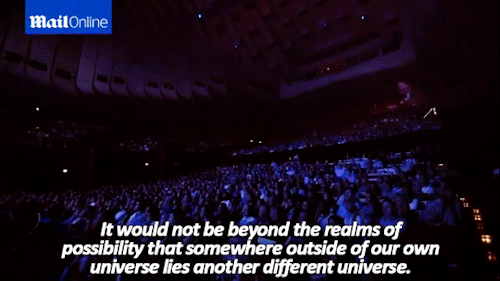

Professor Stephen Hawking believes Zayn might still be in One Direction - in a different universe




i don't have a lot of reach on here but this important:

USA is seeing voter suppression like never before, trump is doing everything in his power to remain in the white house and he may very well succeed if the american people and the opposition become complacent.
if you or anyone you know voted by mail in ballots in arizona, nevada, or georgia check the status of your ballot. tell your friends and family to check their ballots.
it sucks, i know. it's not fair, at all. but y'all are almost there guys, you're in the home stretch. just push a little more.
these states especially are so important for biden to win, but i would encourage all of you no matter where you are, to check the status of your ballot and correct it if need be/if you still can.
if you see this, signal boost tf out of it, doesn't matter what your blog is about or where you're from.
MBTI & Ideas
The Soar Cognitive Architecture (John E. Laird, 2012)
“The variability and the adaptability of cognition comes from the knowledge that is encoded in a cognitive architecture.
Thus, a cognitive architecture provides the fixed processes and memories and their associated algorithms and data structures
to acquire, represent, and process knowledge about the environment and tasks for moment-to-moment reasoning, problem solving, and goal-oriented behavior.
This leads to a simple equation: architecture + knowledge = behavior. (…)
An environment, though it may be complex and dynamic, is not arbitrary.
The laws of interaction that govern the environment are constant, often are predictable, and lead to recurrence and regularity that affect the agent’s ability to achieve its goals.
There are different regularities at different time scales, which makes it possible and useful to organize knowledge about tasks, actions, and the environment hierarchically. (…)
Computation resources are limited so that an agent cannot perform arbitrary computation in the time it has available to respond to the dynamics of the environment.
Thus, an agent has bounded rationality and cannot achieve perfect rationality (or universal intelligence) in sufficiently complex environments and tasks when it has a large body of knowledge. (…)
Thus, to preserve reactivity, a cognitive architecture must constrain the types of knowledge that can be encoded and or the types of queries that can be made.
The architecture can include fixed methods for organizing its knowledge so that it can be searched quickly (relative to overall temporal scale of the agent),
possibly in bounded time, using data structures such as hash tables, heaps, or trees that avoid the exponential explosion inherent to problem-space search.”
It's even more fitting that the Mars 2020 rover is named Perseverance considering everything that's been going on in the world

Ceausescu’s children (Wendell Steavenson, The Guardian, Dec 10 2014)
“When he came to power in 1966, Ceaușescu had grand plans for Romania.
The country had industrialised late, after the second world war, and its birthrate was low.
Ceaușescu borrowed the 1930s Stalinist dogma that population growth would fuel economic growth and fused this idea with the conservatism of his rural childhood.
In the first year of his rule, his government issued Decree 770, which outlawed abortion for women under 40 with fewer than four children.
“The foetus is the property of the entire society,” Ceaușescu announced.
“Anyone who avoids having children is a deserter who abandons the laws of national continuity.”
The birth rate soon doubled, but then the rate of increase slowed as Romanian women resorted to homemade illegal abortions, often with catastrophic results.
In 1977 all childless persons, regardless of sex or martial status, were made to pay an additional monthly tax.
In the 1980s condoms and the pill, although prohibitively expensive, began to become available in Romania – so they were banned altogether.
Motherhood became a state duty. The system was ruthlessly enforced by the secret police, the securitate.
Doctors who performed abortions were imprisoned, women were examined every three months in their workplaces for signs of pregnancy.
If they were found to be pregnant and didn’t subsequently give birth, they could face prosecution. Fertility had become an instrument of state control.
This policy, coupled with Romania’s poverty, meant that more and more unwanted children were abandoned to state care.
No one knows how many. Estimates for the number of children in orphanages in 1989 start at 100,000 and go up from there.”
-
 justrandomthoughtsyeah liked this · 2 weeks ago
justrandomthoughtsyeah liked this · 2 weeks ago -
 damiansrose liked this · 3 weeks ago
damiansrose liked this · 3 weeks ago -
 colinnoahmayhare reblogged this · 3 weeks ago
colinnoahmayhare reblogged this · 3 weeks ago -
 holyfudgebuckets reblogged this · 3 weeks ago
holyfudgebuckets reblogged this · 3 weeks ago -
 komekoro reblogged this · 3 weeks ago
komekoro reblogged this · 3 weeks ago -
 saturnskeyring reblogged this · 3 weeks ago
saturnskeyring reblogged this · 3 weeks ago -
 leabutcool reblogged this · 4 weeks ago
leabutcool reblogged this · 4 weeks ago -
 rvllybllply2014 reblogged this · 4 weeks ago
rvllybllply2014 reblogged this · 4 weeks ago -
 existentiallycrisised reblogged this · 4 weeks ago
existentiallycrisised reblogged this · 4 weeks ago -
 zezozproductions liked this · 4 weeks ago
zezozproductions liked this · 4 weeks ago -
 chazporkloin liked this · 4 weeks ago
chazporkloin liked this · 4 weeks ago -
 batri-jopa reblogged this · 4 weeks ago
batri-jopa reblogged this · 4 weeks ago -
 starnightsstuff liked this · 4 weeks ago
starnightsstuff liked this · 4 weeks ago -
 monkeydoll5 reblogged this · 1 month ago
monkeydoll5 reblogged this · 1 month ago -
 maybeillwritesmth reblogged this · 1 month ago
maybeillwritesmth reblogged this · 1 month ago -
 maybeillwritesmth liked this · 1 month ago
maybeillwritesmth liked this · 1 month ago -
 a-lost-little-eevee liked this · 1 month ago
a-lost-little-eevee liked this · 1 month ago -
 buttsbotyaasssss reblogged this · 1 month ago
buttsbotyaasssss reblogged this · 1 month ago -
 dragon--ashes liked this · 1 month ago
dragon--ashes liked this · 1 month ago -
 callmewhateveruwanticantthink liked this · 1 month ago
callmewhateveruwanticantthink liked this · 1 month ago -
 pheonixqueen reblogged this · 1 month ago
pheonixqueen reblogged this · 1 month ago -
 pheonixqueen liked this · 1 month ago
pheonixqueen liked this · 1 month ago -
 kingdom-of-roaring-ameobas reblogged this · 1 month ago
kingdom-of-roaring-ameobas reblogged this · 1 month ago -
 kingdom-of-roaring-ameobas liked this · 1 month ago
kingdom-of-roaring-ameobas liked this · 1 month ago -
 hannahlauren4229 reblogged this · 1 month ago
hannahlauren4229 reblogged this · 1 month ago -
 sprinkleglitz reblogged this · 1 month ago
sprinkleglitz reblogged this · 1 month ago -
 unholyhelbig liked this · 1 month ago
unholyhelbig liked this · 1 month ago -
 phantasm-agoria reblogged this · 1 month ago
phantasm-agoria reblogged this · 1 month ago -
 clowningintheexistence liked this · 1 month ago
clowningintheexistence liked this · 1 month ago -
 leotheloaf liked this · 1 month ago
leotheloaf liked this · 1 month ago -
 saturnskeyring liked this · 1 month ago
saturnskeyring liked this · 1 month ago -
 vassildra reblogged this · 1 month ago
vassildra reblogged this · 1 month ago -
 vassildra liked this · 1 month ago
vassildra liked this · 1 month ago -
 lemon-embalmer liked this · 1 month ago
lemon-embalmer liked this · 1 month ago -
 rocketonthemoon reblogged this · 1 month ago
rocketonthemoon reblogged this · 1 month ago -
 notmybitch reblogged this · 1 month ago
notmybitch reblogged this · 1 month ago -
 ahsokazworld reblogged this · 1 month ago
ahsokazworld reblogged this · 1 month ago -
 yayananana reblogged this · 1 month ago
yayananana reblogged this · 1 month ago -
 kiiiiiim reblogged this · 1 month ago
kiiiiiim reblogged this · 1 month ago -
 gottakeepthingsproperboring liked this · 1 month ago
gottakeepthingsproperboring liked this · 1 month ago -
 pholcidae3 liked this · 1 month ago
pholcidae3 liked this · 1 month ago -
 mrljester liked this · 1 month ago
mrljester liked this · 1 month ago -
 mrljester reblogged this · 1 month ago
mrljester reblogged this · 1 month ago -
 itsorange-innit reblogged this · 1 month ago
itsorange-innit reblogged this · 1 month ago -
 supernuttyninja liked this · 1 month ago
supernuttyninja liked this · 1 month ago -
 yourlocalegotisticalqueerishere reblogged this · 1 month ago
yourlocalegotisticalqueerishere reblogged this · 1 month ago

Take good care of yourself so you can care for others as well.
91 posts